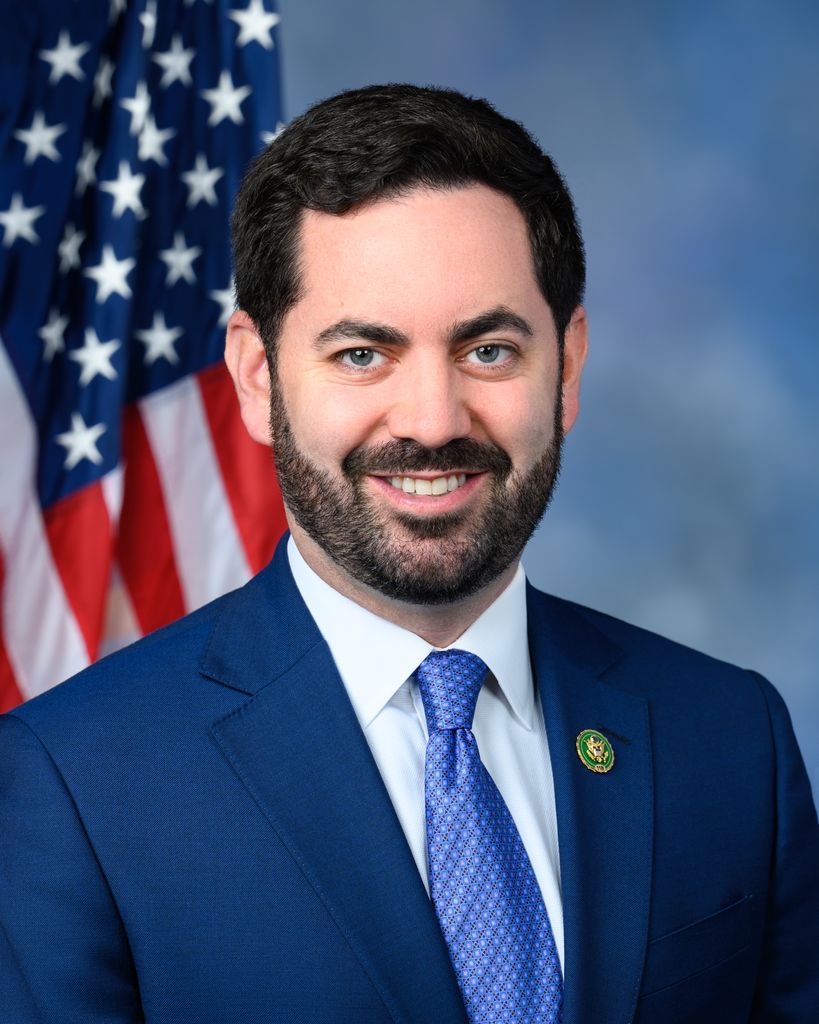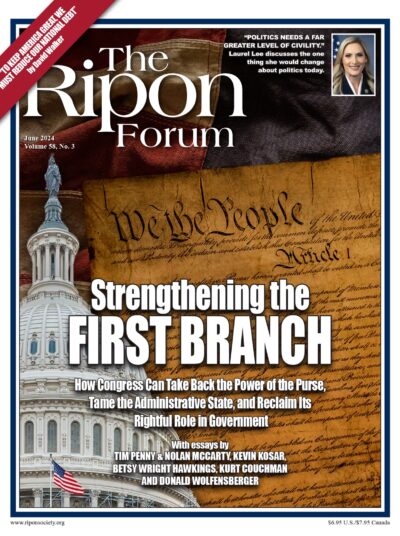
Last month, the House of Representatives passed my bill, the Antisemitism Awareness Act, with overwhelming support by a vote of 320 to 91. The legislation requires the Department of Education to consider the International Holocaust Remembrance Alliance Working Definition of Antisemitism and its contemporary examples when investigating discrimination cases on college campuses. This would streamline the process for investigating complaints and ensure antisemitic incidents are called out for what they are. The bill is modeled after an Executive Order offered by President Trump that has been kept in place by the Biden Administration, but codifying this policy strengthens its impact and ensures meaningful enforcement from the Department of Education.
There has been a lot of misinformation about this legislation emanating from its detractors on both the far left and the far right. So it’s important not only to understand what this legislation does, but also what it doesn’t do. The Antisemitism Awareness Act does nothing to limit the expression of one’s religion or freedom of speech. In fact, these freedoms are specifically protected in the text of the bill, “nothing in this Act shall be construed to diminish or infringe upon any right protected under the First Amendment to the Constitution of the United States.” I am a Christian. The idea that I would support any legislation discriminating against individuals who share my faith is ludicrous. So is the notion that this legislation could ever be used to stifle debate over American or Israeli policy, of which there is plenty.
Jewish citizens account for 2.4 percent of our population, yet they are the targets of about 60 percent of religious hate crimes.
What we are seeing on college campuses and in so many places across our country right now is not debate over policy or the expression of religious views. What we are seeing is blatant discrimination, harassment, and outright acts of violence against Jewish Americans. Jewish citizens account for 2.4 percent of our population, yet they are the targets of about 60 percent of religious hate crimes. And in the wake of antisemitic incidents on college campuses across our country, violence against Jews has gotten even worse. A Jewish Yale student was stabbed in the eye by a Palestinian flag; Jewish students at Cooper Union were barricaded into the university library for safety; and Jewish students at UCLA, Columbia, and others were physically blocked from attending class, being told “Zionists go home” and “Go back to Poland.” We just marked the 80th anniversary of the Allied invasion of Normandy. The heroes of our Greatest Generation would be shocked, eight decades later, to see rhetoric and actions in our country reminiscent of the regime they vanquished.
I saw the consequences of this vile behavior firsthand during my recent trips to Columbia University, where I heard directly from Jewish students and met with members of Columbia’s administration. What I heard shocked me. Jewish students said they couldn’t attend classes without facing verbal or physical assault and harassment. Meanwhile, administration officials tried to justify their lax enforcement of campus policies by claiming negotiating with antisemitic students was more productive than confronting them. It is astounding to me that left-wing academics and campus leaders who have long championed “safe spaces” and decried “microaggressions” are unwilling to condemn threats against Jewish students with the same intensity that they would condemn attacks against students of a particular race, gender, or sexual orientation. My position from the start has been this: if colleges won’t act to protect the safety of their own students, Congress has a responsibility to do so. That’s exactly what we in the House did in passing the Antisemitism Awareness Act.
My position from the start has been this: if colleges won’t act to protect the safety of their own students, Congress has a responsibility to do so.
This is not a free speech issue – it’s a student safety issue. We cannot sit idly by as protesters on college campuses across the country intimidate and harass their Jewish classmates. We cannot, as the recent testimony of college presidents on Capitol Hill seemed to advocate, wait for an actual genocide of Jews in order to condemn the advocacy of genocide against Jews. The Antisemitism Awareness Act will finally require the Department of Education to address the antisemitism we’ve seen sprout up at colleges and universities head-on. I reiterate my call to Senate Majority Leader Chuck Schumer to bring this bill up for a vote in that chamber without further delay. Time is of the essence. Jewish Americans deserve nothing less.
Mike Lawler proudly represents New York’s 17th Congressional District which includes Rockland County, Putnam County and portions of Westchester and Dutchess counties.




